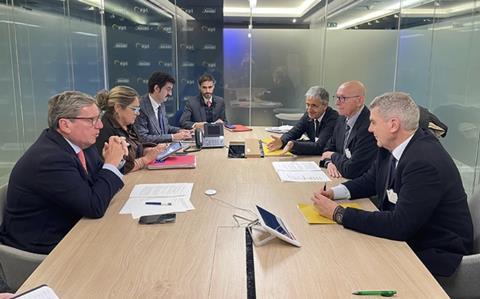Farmer’s association says EU treaty with South Africa has caused a 40 per cent drop in early mandarin production
A delegation from Valencian farmer’s association Ava-Asaja are in Brussels this week to highlight their concerns about the impact of the European Union’s treaty with South Africa on the region’s citrus sector.

It claims there has been a 40 per cent drop in the production of early clementines and satsumas since 2016, when the treaty was signed. According to a report prepared by Ava-Asaja based on data from the Valencian Regional Ministry and the Ministry of Agriculture and the Citrus Growers Association of South Africa (CGA), volumes have fallen from 361,226 tonnes to 211,718 tonnes in that time.
“This is mainly due to the overlap in the initial part of the citrus season with late-season South African mandarins, whose exports to the European market have more than tripled in the last decade, increasing from 53,869 tonnes to 180,140 tonnes,” the association said.
“Furthermore, between 2012 and 2017, when the agreement was finalised, South Africa planted more than 10mn late-season mandarin seedlings, equivalent to approximately 24,000ha of trees with an estimated annual production of 750,000 tonnes.”
Ava-Asaja’s president, Cristóbal Aguado, warned of “the unstoppable replacement of European citrus with fruit from South Africa, which has a larger carbon footprint, lacks reciprocity, and operates under conditions of unfair competition”.
During their visit to Brussels, Ava-Asaja were due to hold a series of meetings with Spanish MEPs, as well as members of the Permanent Representation of Spain to the European Union (Reper) and the Directorates-General for Agriculture and Animal Health and Welfare of the European Commission.
Ava-Asaja also warned of the “unacceptable phytosanitary risk posed by South African citrus exports to the EU”, pointing to the recent increase in detections of black spot in EU-bound shipments of citrus from South Africa and Zimbabwe, as recorded by the European Commission’s Traces system.
“Furthermore, two shipments of South African citrus were infested with the false codling moth, one of which was intercepted in a container of oranges. This indicates that the cold treatment, which eradicates the pest, did not comply with European regulations. South Africa leads the world ranking of interceptions, second only to Argentina, which has recorded 24 detections so far this year,” Ava-Asaja said.
The association is calling on MEPs to “pressure the European Commission to finally conduct an impact assessment of the treaty with South Africa, from economic, social, and environmental perspectives, taking into account the massive abandonment of fields that has led to the disappearance of 40 per cent of our early clementines and satsumas”.
Furthermore, Ava-Asaja called on the European Commission to take decisive measures, such as closing borders to South African citrus, until it is able to guarantee the phytosanitary safety of its shipments to the EU.



